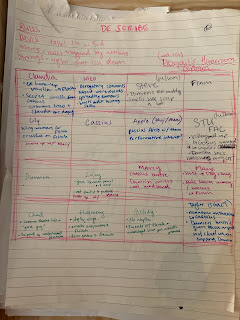You only need to roll Open Door once
If you're playing in a dungeon where every door is stuck, you only need to roll for Open Door once per door. (Bonus dice on the roll for everybody helping to open the door -- two people can try to open a normal door, three people can try to open a really big one.) If the roll hits, well, they've opened the door, and you don't need to roll again. If the roll misses, say "Anybody in the next room has heard you try to open the door; you have no chance of surprising them. Are you still going to go through?" Then they'll go through the door, or not. There's no point rolling again and again if the only consequence for failure is "It didn't open this time, try again?". It only takes 10 seconds to try and open a door. That's nothing in comparison to a 10 minute dungeon turn. If you spend a whole minute trying to open the door, you've got a 90% chance of success, but do we really want to spend table time rolling 6 times and checking for a hit...

(mirror).png)